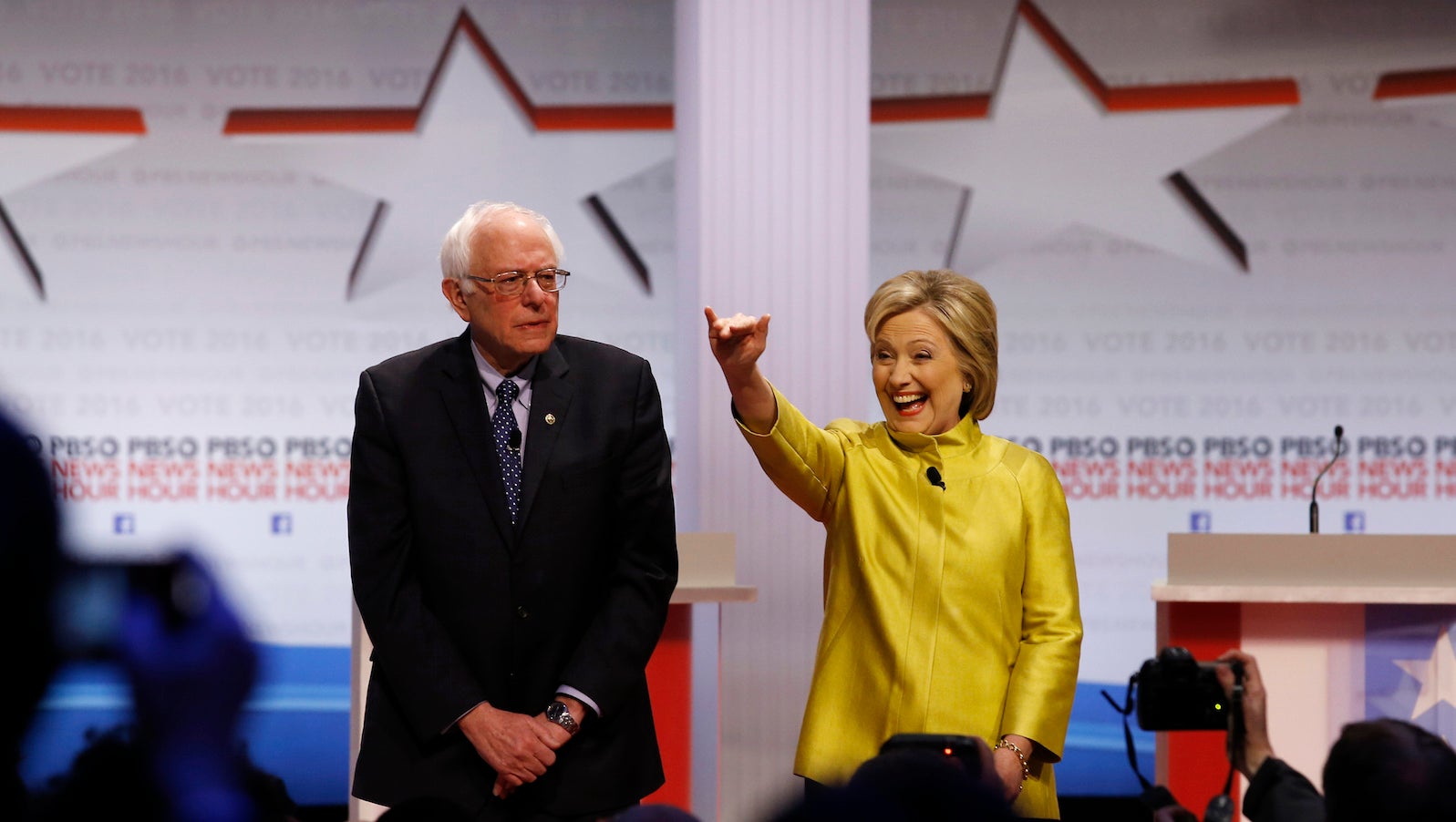Sanders and Clinton both have a long way to go in winning black voters’ trust
As Democratic presidential candidates head into the South Carolina primaries on Feb. 27, they will reckon for the first time with a voter base made up of a majority of black voters. Both Hillary Clinton and Bernie Sanders have stepped up their courting of black Americans accordingly, tracking down endorsements from high-profile black leaders and making speeches centered on racial issues in the US. But they each have a long way to go in making a persuasive case that they have black Americans’ best interests at heart.


As Democratic presidential candidates head into the South Carolina primaries on Feb. 27, they will reckon for the first time with a voter base made up of a majority of black voters. Both Hillary Clinton and Bernie Sanders have stepped up their courting of black Americans accordingly, tracking down endorsements from high-profile black leaders and making speeches centered on racial issues in the US. But they each have a long way to go in making a persuasive case that they have black Americans’ best interests at heart.
Clinton’s association with big banks, and her record on mass incarceration—particularly her critical role in pushing forward the 1994 crime bill—have made many black voters suspicious of her candidacy. Michelle Alexander, who arguably wrote the book on the subject of mass incarceration, argues in The Nation that Clinton does not deserve the black vote because of her record. Activists from Black Lives Matter have publicly held the senator accountable.
However, Clinton’s hard-hitting speech on race in the US in Harlem, New York, on Feb. 16 may well have helped her make progress toward winning the black vote. Clinton spoke to the country’s historical failure to invest in black communities and promised $125 billion dollars for social programs directed specifically at black Americans. She also promised money for programs that will help former inmates reintegrate into society after incarceration, put a stop to the school-to-prison pipeline and create more jobs for young people. These were more concrete promises than Clinton has made in the past, and the reaction among leaders in the black community was largely positive.
Sanders also made a stop through Harlem on Feb. 10, attending a highly publicized summit with reverend Al Sharpton at famous soul-food restaurant Sylvia’s. Despite the fanfare, Sharpton announced (after meeting separately with Clinton behind closed doors) that he would not be endorsing either candidate at this time.
Sanders has far less name recognition than Clinton among black voters in general, and especially in South Carolina. So he’s been spending a lot of time playing catch-up on the ground, talking to religious leaders over prayer breakfasts and wooing younger black voters on the campuses of historically black universities. The Vermont senator has also been trying to get his name out among black voters by relying on the star power of figures such as Ben Jealous, former head of the National Association for the Advancement of Colored People (NAACP), and actor Danny Glover.
Unfortunately, endorsements are the “I have a black friend!” move of the campaign trail. Black voters are smarter than that. What they really care about are the policies that candidates propose. But for Sanders, it may be tricky to get voters to pay attention to the policies of a candidate they’ve never heard of. This puts him in a bind: Seeking out the endorsements of black leaders makes him look a bit desperate, but without them, nobody knows who he is.
Meanwhile, Sanders has continued to play up his racial justice platform, unveiled months ago. He’s pledged to put an end to prisons for profit, decriminalize marijuana, and devote $1 trillion to jobs programs, including programs to assist formerly incarcerated Americans. The federal government is limited in its ability to enact prison reforms, since the majority of incarcerated people are housed in state and local prisons. But Sanders’s ambition is admirable.
However, Sanders hurt his reputation among black voters when he was asked about reparations for black Americans at a Minnesota town hall on Feb. 12. Sanders emphasized the need for economic investment in poor white communities as well as black communities in his response. This was a deeply disturbing answer, as it ignores the specificity and inevitability of poverty as a social outcome for black Americans.
This comment echoes Sanders’s past remarks on reparations, as well as the often race-blind philosophies that emerged from Occupy Wall Street–a movement for which the senator is arguably a representative. It seems Sanders has failed to grasp that people are poor in America because they are black, rather than in addition to the fact of their race.
Today, the politics of the left have moved beyond Occupy. Black Lives Matter demands that Americans take a hard look at the intersection of race and class and recognize that anti-poverty programs are not enough. Clinton and Sanders each need to prove that they are aware of how the political conversation has progressed–and they can do so by articulating policy plans specific to ending systemic racism in the US.